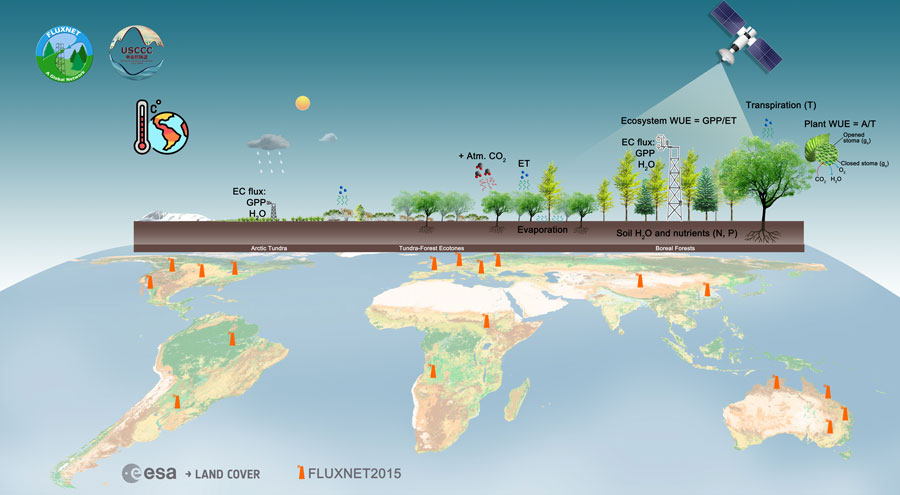It's often said that you should never put all your eggs in one basket. New research indicating that plants' ability to absorb carbon dioxide may have stalled, just published in the journal Science by climate experts at Michigan State University, suggests that perhaps we shouldn't put all our climate mitigation hopes in too many plant-based strategies either, at least for the time being.

It's generally been assumed that when levels of CO2 rise rapidly in our atmosphere, as we've witnessed throughout the last century, plants adjust to these changing conditions by using less water while also taking up more of this heat-trapping gas during photosynthesis. However, these new findings may be shedding light on an unsettling trend — it appears that global warming is causing plants to not only use more water, but it also appears to be stalling the rates of CO2 absorption — in effect weakening plants' ability to mitigate further climate change over large areas of the planet. This could be a significant blow to many of the nature-based solutions currently proposed to help address the adverse effects of climate warming, making it more challenging to achieve carbon neutrality.
What is causing this startling change? "From 1982 to 2000, our research does show an increase in ecosystem water use efficiency. This is the ratio between their carbon assimilation abilities and their water evapotranspiration processes, which involve plants transferring water from the land to the atmosphere," said Jiquan Chen, a global change scientist and professor with the MSU Department of Geography, Environment and Spatial Sciences and the Center for Global Change and Earth Observations and one of the studies authors. "With increasing rates of CO2 s during this time span, this is what we expected to see. But, when we looked at these rates from 2001 to 2016, the data is showing us that this process has stalled out even though we know that rates of CO2 have not stalled in the least."
To read more, visit the Department of Geography, Environment and Spatial Sciences website.